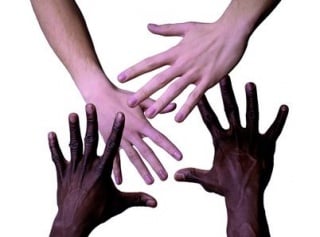Every nation has its own culture and things that they think are fine but also rude or insulting.

Communication is an area that can be especially challenging for those uninformed about cultural differences. A simple nod of the head or smile may be interpreted as something you had not intended.
For example, around the world a smile can relay many emotions, not just happiness or pleasure as in the U.S. In Japan, people smile when they are sad, angry, confused, and happy. Asians smile to show disagreement, anger, confusion, and frustration. Some people from Japan and Asia will not smile for official photos, such as passport photos, because these are considered serious occasions and they do not want to look as though they are not taking the situation seriously.
Eye contact varies around the world as well. If a staff member will not look you in the eye when speaking, do not take it as an insult. People from many Asian and Latin American cultures avoid direct eye contact as a sign of respect.

Many people have perceptions and prejudices about others.
Some Perceptions of Americans:
Europe & especially England. "Americans are stupid and unsubtle. And they are fat and bad dressers."
Finland. "Americans always want to say your name: 'That's a nice tie, Mikko. Hi Mikko, how are you Mikko'
Indian. "Americans are always in a hurry. Just watch the way they walk down the street."
Kenyan. "Americans are distant. They are not really close to other people -- even other Americans."
Turkey. "Once we were out in a rural area in the middle of nowhere and saw an American come to a stop sign. Though he could see in both directions for miles, and there was no traffic, he still stopped!"
Colombia. "In the United States, they think that life is only work."
Indonesia. "In the United States everything has to be talked about and analyzed. Even the littlest thing has to be 'Why, why why?'."
Ethiopia. "The American is very explicit. He wants a 'yes' or 'no'. If someone tries to speak figuratively, the American is confused."
Iran. "The first time my American professor told me 'I don't know, I will have to look it up', I was shocked. I asked myself 'Why is he teaching me?'"

We should try to understand and learn something from each other.
Understanding cultural differences
11 svibanj 2012komentiraj (0) * ispiši * #
